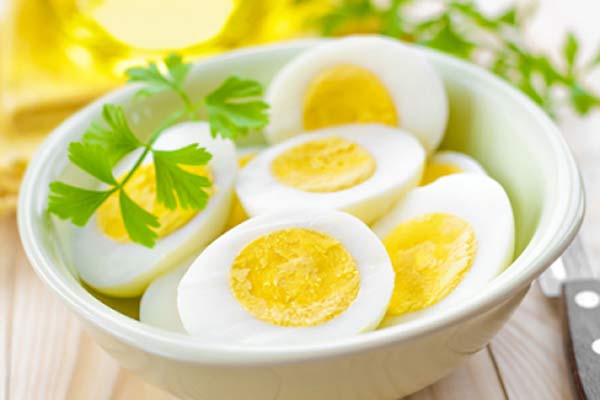
Eggs: Super Food or Cholesterol Bomb?
Poached, boiled, fried eggs, scrambled eggs, frittata, Benedict – egg dishes can be found in the menu of almost every cafe and restaurant. Availability, speed of cooking and variety of dishes make eggs a permanent inhabitant of our refrigerators. Why do some call super food eggs and the perfect protein, and the other – a toxic load on the body, and cholesterol in the shell? Should I include eggs in their diet, which is more useful the eggs and the eggs that say health specialists?
Vitamins and minerals
Eggs have long been considered the ideal protein source. The World Health Organization uses the egg as the gold standard for evaluating the protein quality of other foods. Eggs are a complete protein because they contain all ten amino acids contributing to the health of our bone, hair, skin, nails, and muscle. The eggs contain all vitamins B, including B1, B2, B3, B5, B6, B12, and chorine, biotin and folic acid. Eggs are also a good source of selenium, iodine, iron, and omega-3 fatty acids. Eggs are recommended to use for portions of vitamin A and E. A study conducted by Harvard University in 2005 found that women who ate at least 6 eggs per week, the chance of breast cancer was 44% lower than those who do not include eggs in their diet.
“Eggs, an ancient symbol of fertility, contain vitamin D, which rightly makes them one of the top 10 products for the improvement of women’s fertility,” – says a women’s health expert.
“If you decide to include animal protein in your diet, I recommend the eggs, not fish or dairy products. In the first place, because they are less exposed to toxins from the environment, “- says Dr. Joel Fuhrman, dietician.
Bad reputation
You’ve heard the opinion that eggs are harmful, because the yolk contains a lot of cholesterol, which in turn leads to clogged arteries and heart disease. Indeed, in one average egg yolk contains about 180-220 mg of cholesterol, and the RDA for an adult is about 300 mg. But it is important to consider that cholesterol in foods does not necessarily increase the blood cholesterol level. Cholesterol is divided into “bad” and “good”. Research shows that eating eggs boosts “good” cholesterol or high density lipoprotein, which just reduces the risk of many diseases.
Yolk vs. protein
Almost all of the vitamins and minerals contained in the yolk. The only vitamin that prevails in the protein content – is riboflavin (B3 vitamin). Also, yolk contains phospholipids – fats that are necessary for building cell membranes. Bright colors give the yolk carotenoids (vitamin A), which is significantly more in rural and farm eggs. This is due to a more varied diet of chickens that live in the wild, so almost always in domestic egg yolk is much brighter in color than the store. Protein – Protein is actually clean. It is the protein in humans can be allergic.
Boiled or soft-boiled: c as the better to eat eggs?
Most Western nutritionists recommends eating eggs, as well as any other animal protein, for dinner, not breakfast, as we used to. Animal proteins are digested slowly and can permanently contribute to a sense of general lethargy and fatigue. After serving omelets about cheerful morning you can forget.
Combine eggs are best with non-starchy vegetables and greens. The combination of eggs with bread, potatoes, and fruit is considered to be difficult for our digestive system.
From cooked eggs are best absorbed by the soft-boiled eggs and poached eggs. They contain most of the vitamins and minerals, because they were not exposed to long heat treatment were browned in oil.
there are those who recommend to eat eggs raw, explaining that the heat-treated egg lose most of the vitamins and minerals among nutritionists. The main disadvantage of raw eggs – the risk of encounter with salmonella bacteria, which can be in the egg shell. That is why eggs should always be washed thoroughly, regardless of how you choose to cook them.
What are the best eggs?
The color of the egg shell depends exclusively on chicken breed and the color of their plumage. On the nutritional value of egg shell color has no effect.
On the packaging of eggs can be seen the inscription “enriched with selenium and iodine,” or “rich in omega-3.” To increase the content of these elements in the feed manufacturer adds birds special additives.
Also eggs on store shelves are divided into diet (with the letter “D” on the packaging) and dining ( «C»). Dietary eggs – those whose shelf life of no more than 7 days, and the table – up to 25. It is better to opt for a diet of eggs, since they are fresh.
Vs. Chicken quail
Despite its tiny size, quail eggs chicken seriously outperform the content of vitamins and minerals in 3-4 times. For example, these 5 times more iron and potassium, and 3 times more vitamin B1, than in chicken eggs. Also, they do not cause allergies and does not carry the danger of ill with salmonellae.



